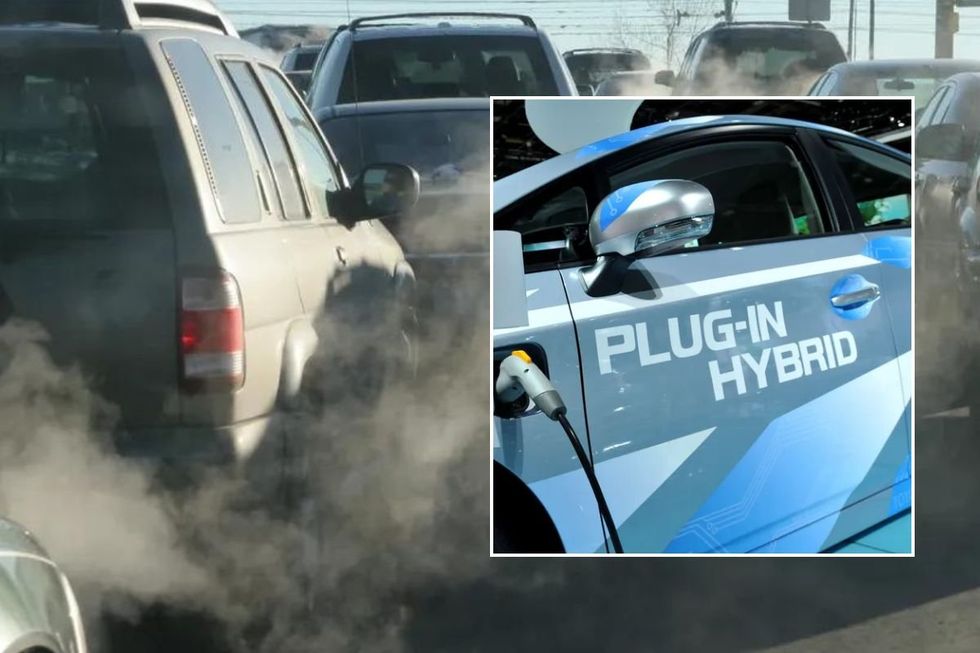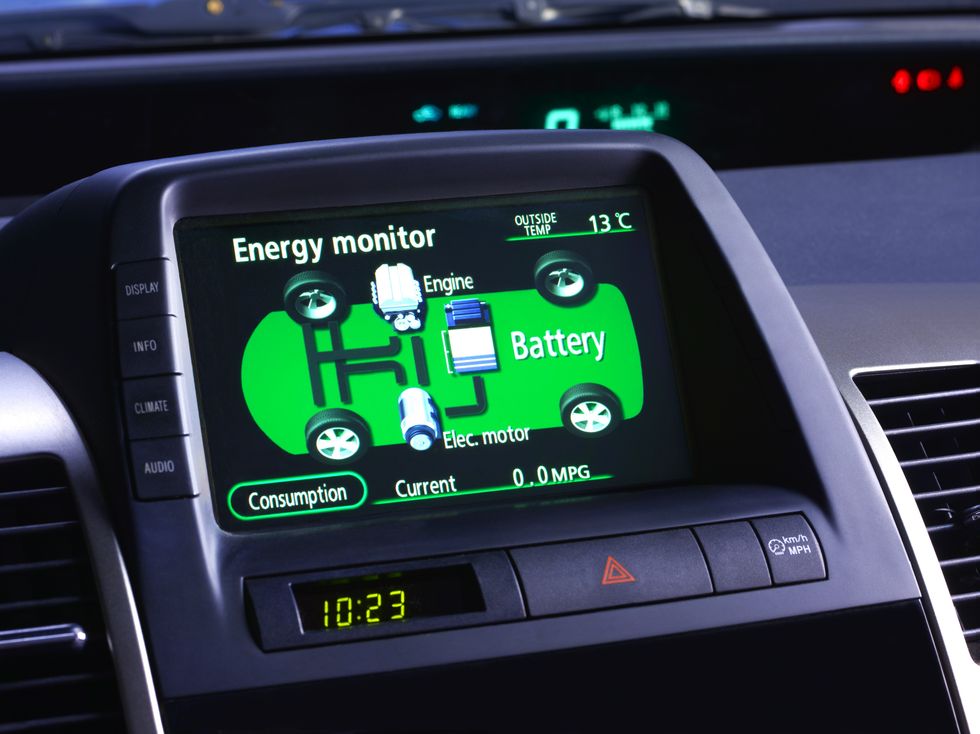Plug-in hybrids pollute almost as much as petrol cars - 'One of the biggest cons in automotive history'

WATCH: Lee Anderson vows to keep diesel car for ‘as long as I can’ as he rages at net zero
|GB NEWS

Experts still maintain that plug-in hybrids offer a suitable go-between before drivers switch to an electric vehicle
Don't Miss
Most Read
New analysis has found that plug-in hybrid vehicles emit almost as much pollution as petrol cars, despite many drivers and lawmakers seeing them as a stepping stone to zero emission vehicles.
Data from Transport and Environment found that plug-in hybrids burn fuel and emit around 68g of CO2 per kilometre on average, even when in electric mode.
Official WLTP test emissions state that the average petrol and diesel car emits 139g/km, while hybrids see a 75 per cent drop in comparison, with just 35g/km.
However, real-world testing found that the gap shrinks to just 19 per cent. Petrol and diesel cars emit around 166g/km, while plug-in vehicles emit a staggering 135g/km.
The real-world data is based on T&E analysis of research from the European Environment Agency (EEA) from fuel monitors on 127,000 vehicles registered in 2023.
When a motorist chooses to drive in electric mode, hybrids consume around three litres of petrol per 100km, on average.
Given the additional fuel being used, estimates suggest that plug-in hybrid drivers are spending an extra €500 (£433) on petrol every year.
Lucien Mathieu, cars director at T&E, described plug-in hybrids as "one of the biggest cons in automotive history".

New analysis has found that plug-in hybrids emit almost as much pollution as petrol cars
|GETTY
He continued, saying: "They emit almost as much as petrol cars. Even in electric mode, they pollute eight times as much as official tests claim.
"Technology neutrality cannot mean ignoring the reality that, even after a decade, PHEVs have never delivered."
The report, entitled "Smoke screen: The growing PHEV emissions scandal", warned that any potential emissions savings were lowered because of the heavier batteries, meaning the car burns more fuel.
Heavier vehicles consumed more energy than smaller cars when being driven using battery power, despite the assumed environmental benefits.
LATEST DEVELOPMENTS:
It also found that plug-in hybrids with an electric range of more than 75km emit more harmful CO2 on average than hybrids with electric ranges between 45km and 75km.
The research comes as lawmakers across the European Union call for changes to be made to proposals that would ban the sale of new petrol and diesel vehicles from 2035.
Experts have continually called for countries to adopt policies that would slow the transition to selling only electric vehicles, warning that some legacy manufacturers may not be able to keep pace.
Mr Mathieu added: "Weakening the rules for plug-in hybrids is like drilling a hole in the hull of Europe's car CO2 law.

Plug-in hybrids were found to burn more fuel than expected when in electric mode
| GETTY"Instead of steering the market toward affordable zero-emission cars, carmakers will flood it with expensive, polluting PHEVs. That risks sinking the EV investment certainty the market desperately needs."
In response to the data, Paul Barker, editor at Auto Express, suggested that the research overlooked the improved efficiency of newer hybrid models and the individual driving style of a motorist.
"Someone who charges daily and uses the battery properly could see huge fuel savings, while a driver who never plugs in won't. That nuance is lost in studies like this," he noted.
Mr Barker said modern plug-in hybrids are better than regular hybrids and offer a suitable bridge for motorists who are not yet convinced of going fully electric.










